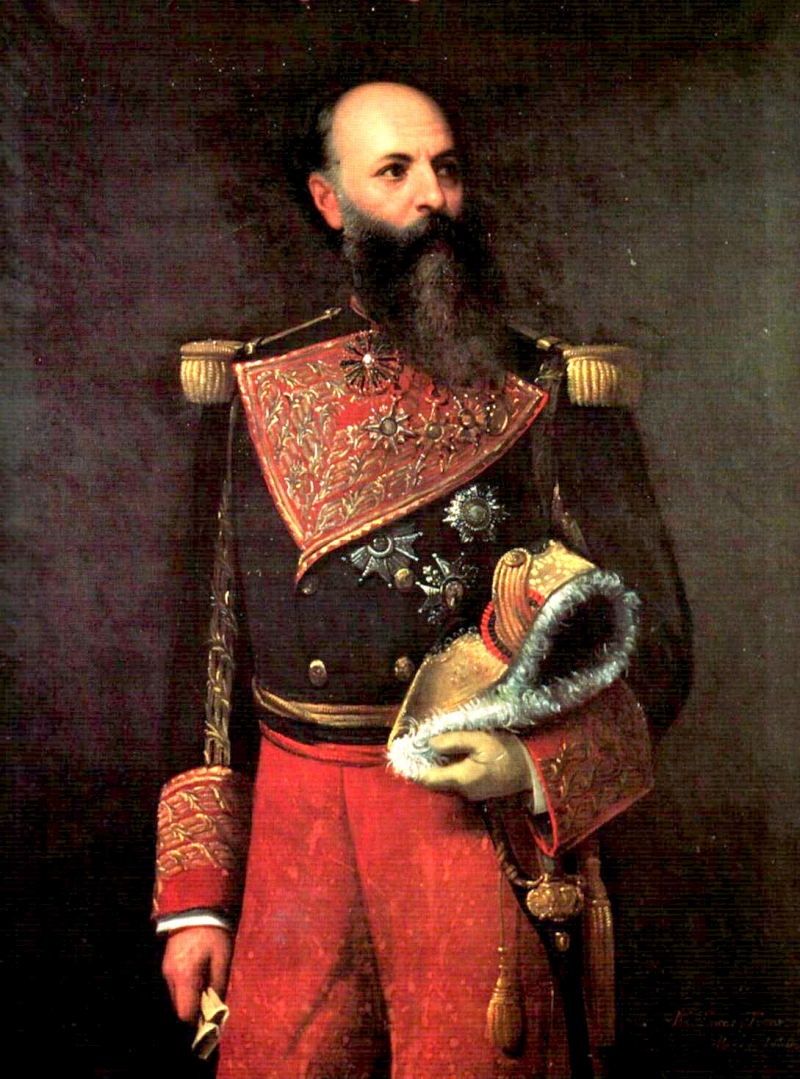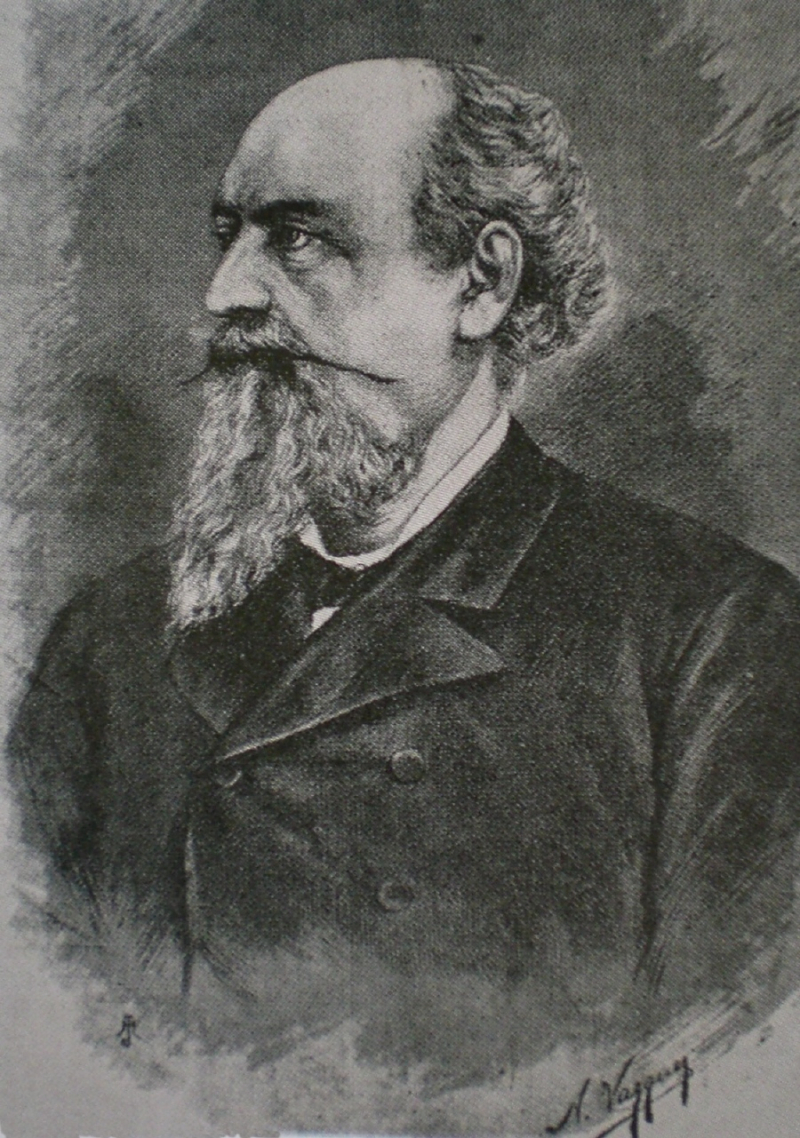Antonio Guzmán Blanco
Antonio José Ramón de La Trinidad y María Guzmán Blanco (February 28, 1829 - July 28, 1899) was a Venezuelan general, statesman, diplomat, and politician. He served as President of Venezuela for three terms, from 1870 to 1877, 1879 to 1884, and 1886 to 1887, and as General during the Venezuelan Federal War. He was a member of the Amarillo Liberalismo movement.
The autocratic nature of Guzmán's regimes was in stark contrast to the economic and legal reforms, as well as the achievements. His administration was responsible for the creation of the modern currency (bolívar), the restoration of the national anthem, the second national census, the railroad between Caracas and La Guaira, the establishment of the Venezuelan Academy of Language, the telephone service between Caracas and La Guaira, the promotion of agriculture and education (Decree of Public and Obligatory Instruction of 1870), the stimulation of commerce, and significant public works (the National Pantheon, the Capitol, and the Municipal Theater, among others.)
Guzman has been cited as an example of a strongman politician by historian Charles L. Davis. While in office, he sharply reduced the power of the Roman Catholic Church in Venezuela.







